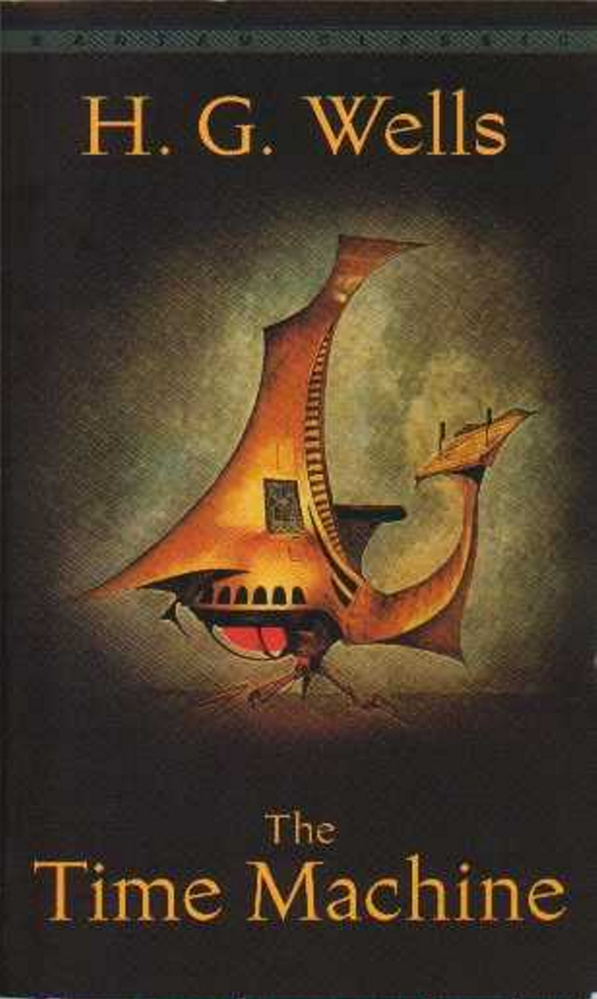Time travel is trending in entertainment this year.
Lisa Parkin’s October 2015 Huffington Post blog “5 Exciting YA Book Trends to look for in 2016,” reveals as much. The same is true for CNBC’s May 2016 online article by Michelle Castillo, “Time Travel and Other TV Trends You Can Count on in 2016.”
If you stream your movies and TV shows, you may have also noticed the recent resurgence of numerous time-hopping series such as “Lost,” “Quantum Leap,” “Sliders,” and “Dr. Who,” as well as all three “Back to the Future” films. Either way you look at it, like it or not, time travel is all around us these days. But the reality is, this entertainment trend is not new or exclusive to 2016.
At least as far back as 1733 writer Samuel Madden tapped into time travel as a plot device for his satirical short story titled “Memoirs of the Twentieth Century.” In the early to mid-1800s, American folklorist Washington Irving and British author Charles Dickens followed suit, Irving by sending his title character “Rip Van Winkle” 20 years into the future by way of a magical mountainside slumber, and Dickens by using late-night, ghostly time travel to scare the “bah humbug” out of Ebenezer Scrooge in the classic novel “A Christmas Carol.”
In the late 19th century, H.G. Wells and Edward Paige Mitchell chose to use mechanics and machinery to transport characters through time and space. Mitchell’s short story “The Clock that Went Backward” features a magical clock that takes people back in time, while Wells’ novel “The Time Machine” uses the first-ever time machine to be named as such to send the book’s main character forward to the year 802,701 AD.
Just from this simple incomplete list it is clear that time travel has been a fascination for a long while, and why wouldn’t it be? The concept of traveling through time to see where we have been, to consider how choices of the past helped to create our present, or to skip ahead to the future to see how today’s choices affect tomorrow’s reality, is more than enticing. Madden, Irving, Dickens, Mitchell, Wells, and the like, all understood the allure behind this concept and capitalized upon it. This, not only in order to help promote their livelihood as writers but also to promote their views on society and humanity.
The marvel of it all to me is how these writers masterfully used one time-traveling device to create new fictional ones. For, if there is one thing I continue to learn, as I pursue my love of great stories, it is that we do not need a magic clock, Wells’ time machine, or even more recent fictitious creations (such as the flying DeLorean or the Tardis) in order to travel through time. Literature can take you to just about any era you wish to experience, past, present or future.
Researching translations of old oral folk and fairy tales can take you to a past that would otherwise be unreachable, if not for those who had the where-with-all to keep the tales alive. The works of Nathaniel Hawthorne offer a portal to the days when witches were said to walk the Earth. Benjamin Franklin’s writings can pull you back into the influential days before the American Revolution. Harriet Beecher Stowe can take you through Uncle Tom’s Cabin, into a time when slavery was the accepted reality in the United States of America. You can visit the roaring ’20s with “The Great Gatsby,” stand in the days of Reconstruction with the writings of Booker T. Washington and W.E.B. Dubois, and step for a moment into the Vietnam War via Tim O’Brien’s short story “The Things They Carried.”
As for me, this fall, I will be setting the dial of my time machine to the 5th century as I embark upon a journey through the early British Romantics. I have no idea what to expect — after all I have never been to the 5th century before.
However, what I do know for certain is that I am just beginning to understand how best to use this time traveling device — otherwise known as literature — for my own understanding of humanity, as well as my place within it. There is no doubt in my mind, Wells’ time machine, the DeLorean or the Tardis would be, by far, the coolest and quickest way to go, but how long will we have to wait for such an invention?
Until then, I will stick with the only time machine I know of that really works. Because for me, as long as there are books to read and stories to be told, time traveling is one trend that will never go out of style.
Rebecca Lux Soc is a part-time student at the University of Maine at Augusta currently working toward a bachelor’s degree in English Literature. A non-traditional student and a wife and mother, she enjoys participating in various programs and conferences on campus, working as a peer writing tutor, and is always seeking out more of the many activities and events the University has to offer for both students and the greater community.
Send questions/comments to the editors.




Comments are no longer available on this story